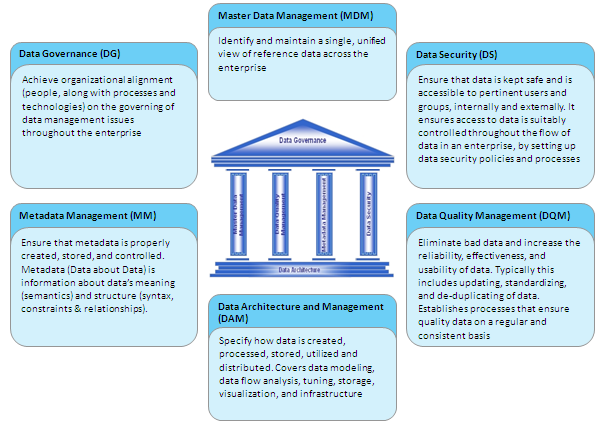Excel Global Solution’s vision on Data Management & Governance is to institute the organizational structure and processes required to address the complex data issues in the Enterprise. Our competency helps to accomplish this through the following initiatives:
Integrating fragmented data architectures has emerged as one of
the greatest challenges facing IT and business. Business
prosperity increasingly depends on a global view of customers,
suppliers, products and partners, which is not achievable without
data integration. Service Oriented architecture helps to build a
framework for enterprise application integration and enterprise
data integration technologies to complement each other.
EGS's
Data Architects helps to build an Enterprise Data Integration
Infrastructure by concentrating on key elements such as:
The dynamic delivery of data integration helps to create universal data access, meta-data repository and data integration platform in turn enables an integrated data infrastructure by:
